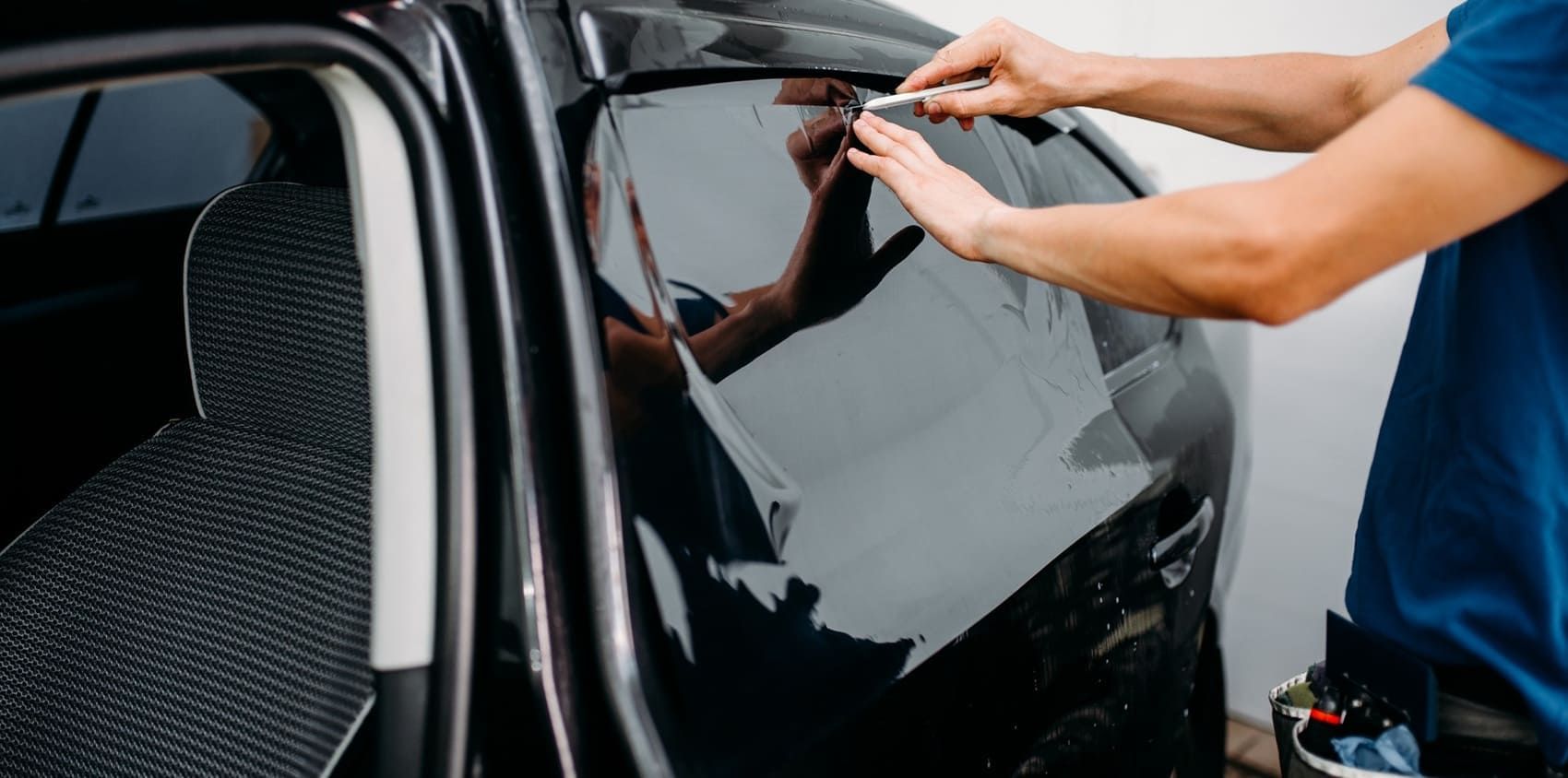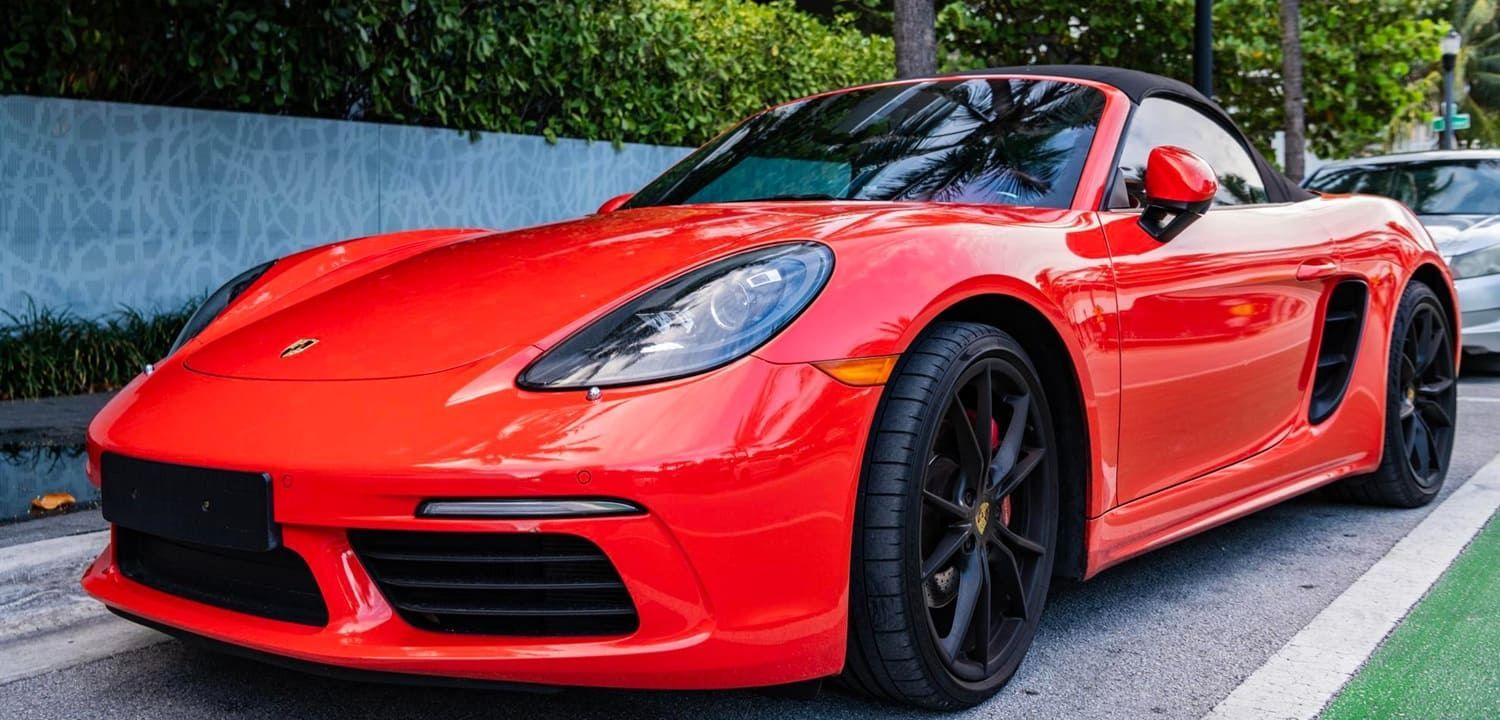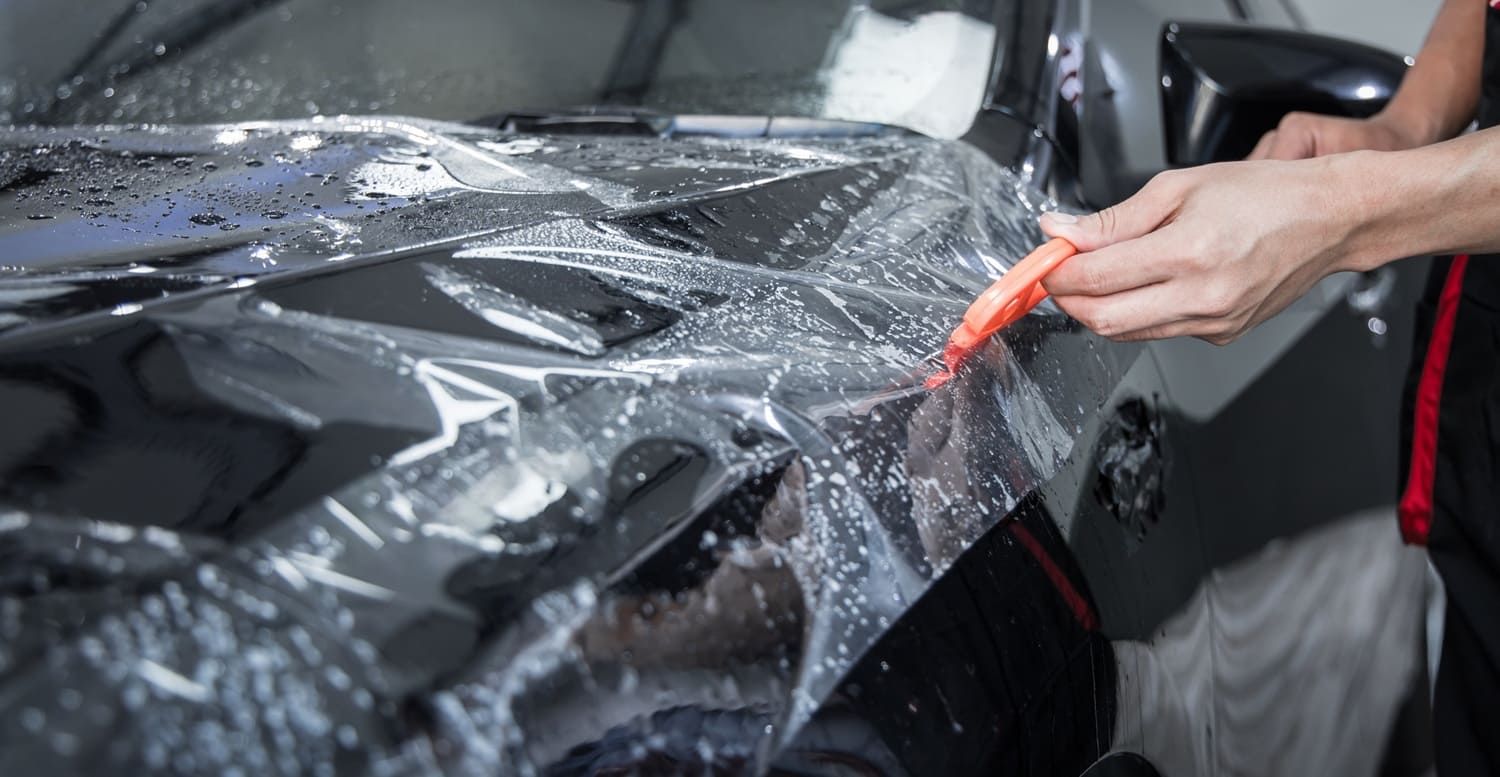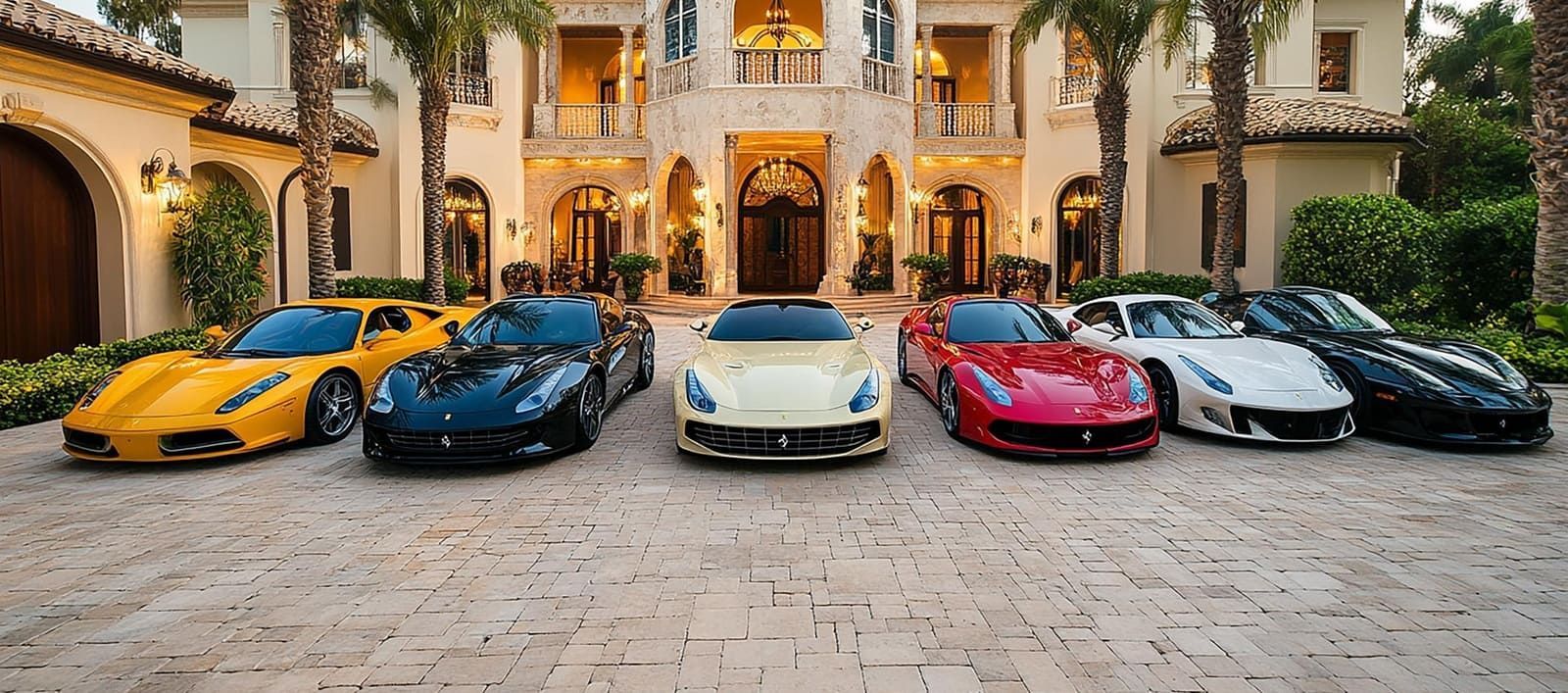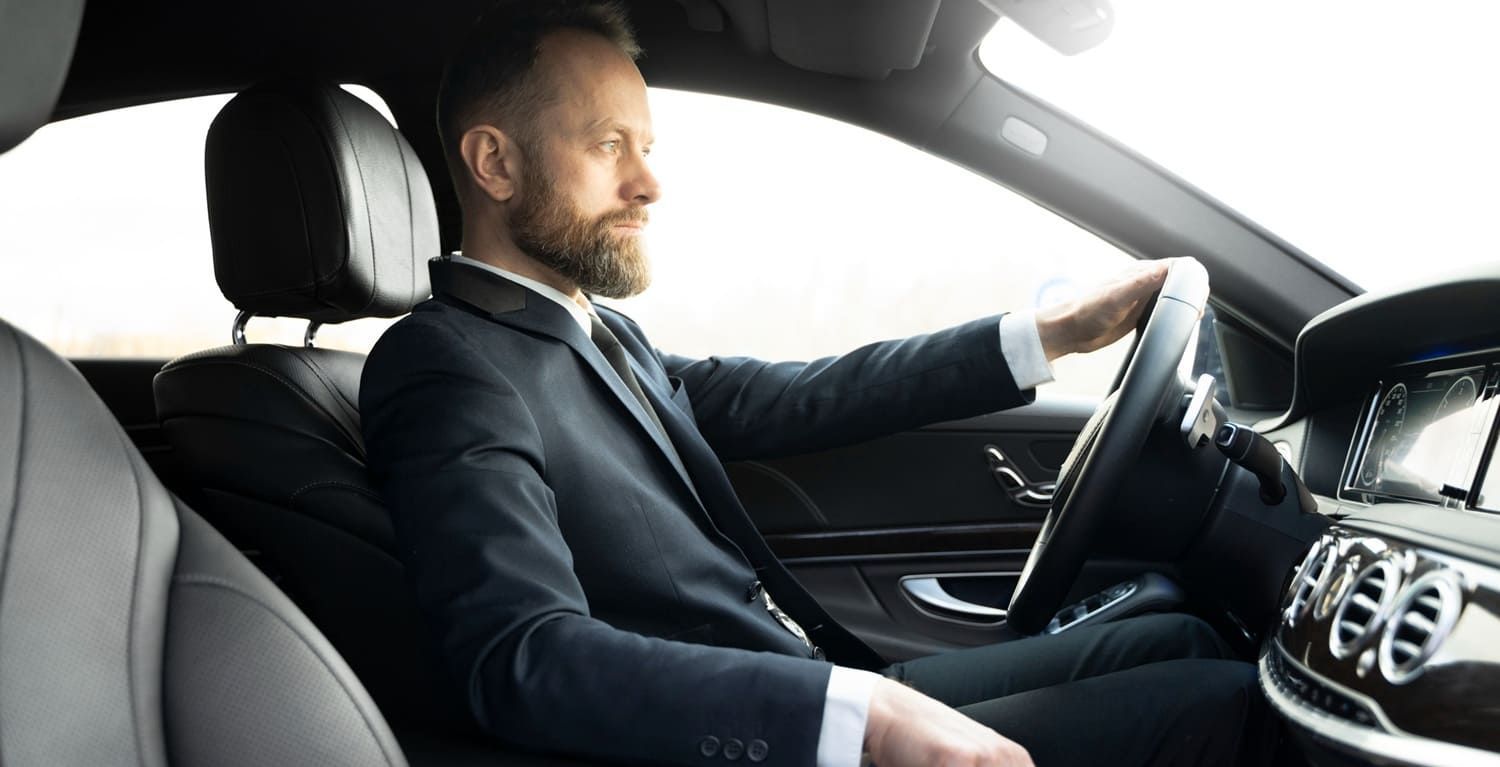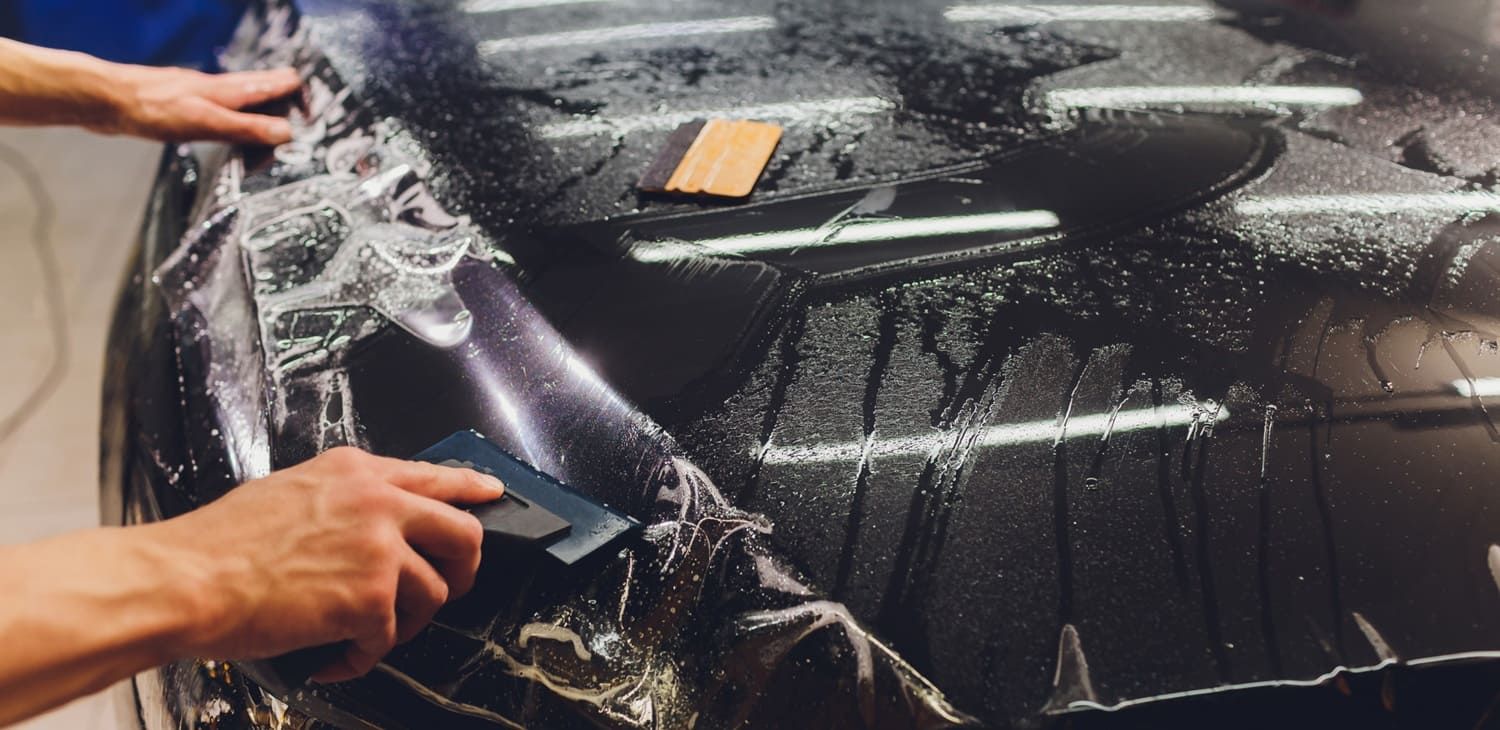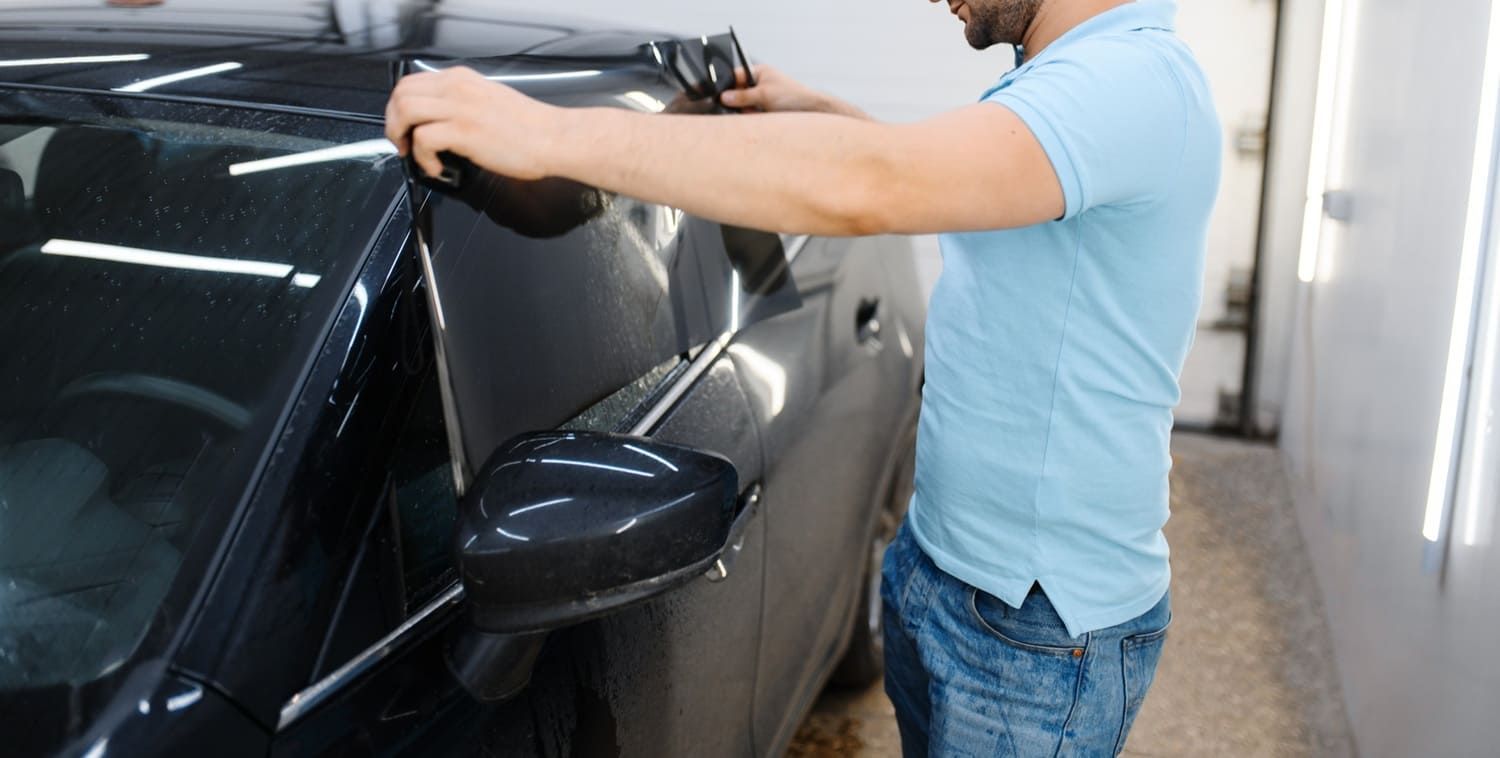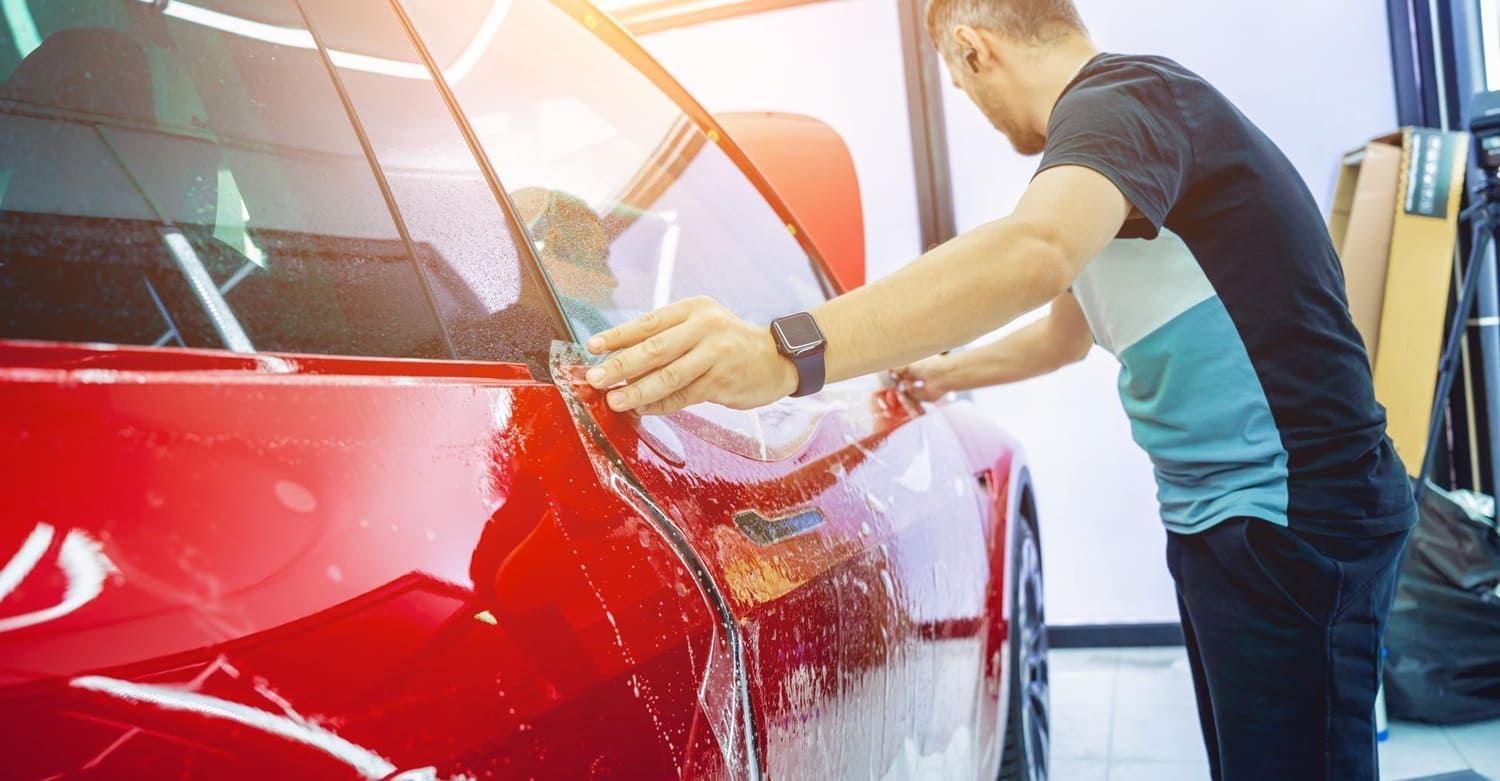Does Auto Window Tinting Really Keep Cars Cooler?
In the sweltering heat of summer, stepping into a car that feels like an oven can be quite unbearable. This discomfort is not just about feeling too hot; it can also lead to health issues like dehydration or heat exhaustion. Many car owners turn to auto window tinting as a solution, but does it really help keep your car cooler? In this article, we'll delve into the multifaceted benefits of auto window tinting, focusing on its ability to regulate temperature, enhance privacy, and protect your vehicle's interior. We'll also explore popular options such as Llumar car window tint, examining why it can be a wise investment for your vehicle.
Auto window tinting involves applying a thin film to the interior or exterior of a car's glass surfaces. This film is made of polyester and comes in various shades and thicknesses, allowing car owners to customize the level of tint to their liking. While the aesthetic appeal is a factor, the primary reasons people opt for window tinting are its functional benefits. These benefits cater not only to comfort and style but also to the longevity and preservation of the car itself.
Window tinting works by blocking or reflecting a portion of the sun's rays. It reduces glare and prevents a significant amount of heat from entering the car. This is achieved by the tint's ability to absorb and reflect solar energy, thereby reducing the amount of visible light and infrared rays that penetrate through the glass. The science behind this involves the interplay between light and heat, with specific materials in the tint designed to reflect and absorb varying wavelengths. This technology has evolved over the years, allowing for more effective solutions that balance heat reduction with visibility.
One of the most talked-about benefits of auto window tinting is its ability to keep the car cooler. But how effective is it really? Understanding the cooling effect requires a closer look at how window tints interact with solar radiation. The effectiveness of window tinting in cooling a car's interior is often underestimated, but when properly installed, it can make a significant difference in the temperature inside the vehicle.
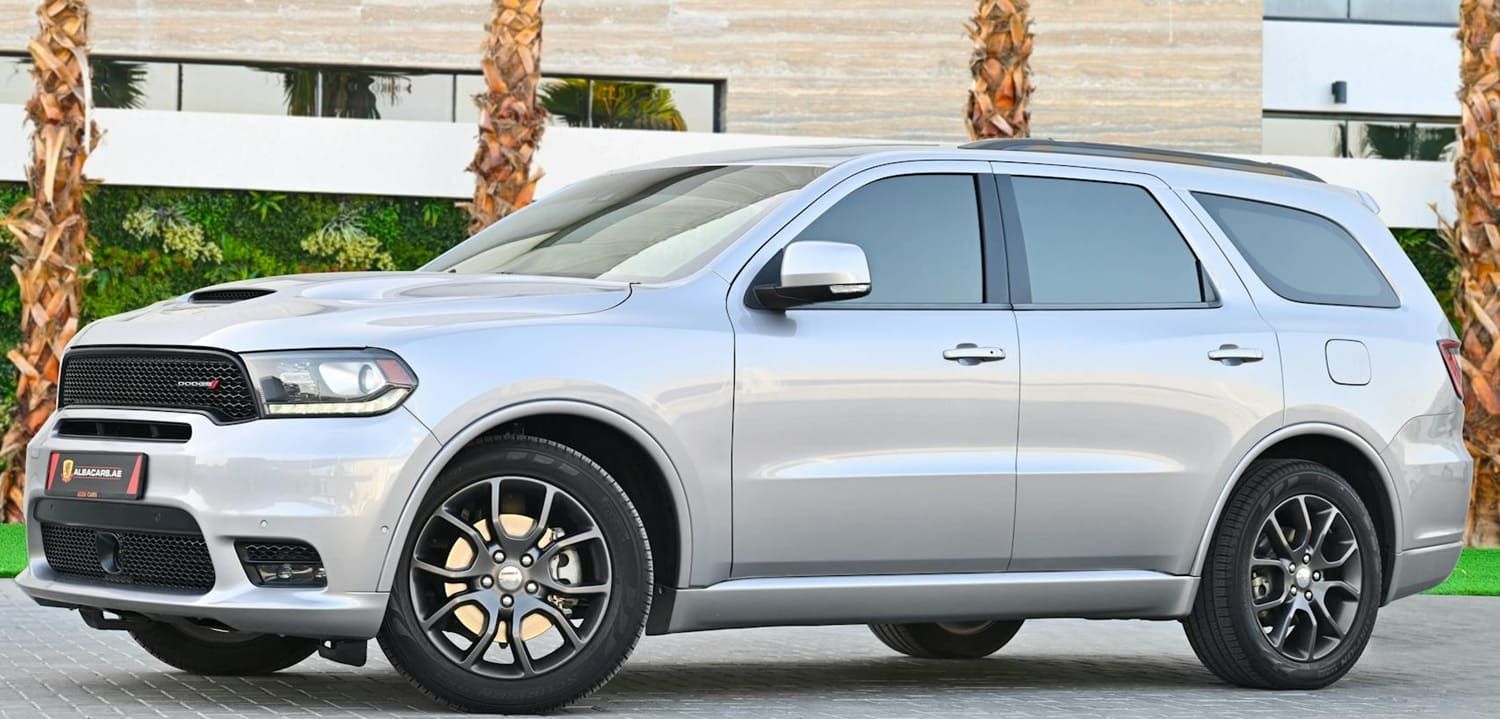
Temperature Regulation
Window tinting can reduce the interior temperature of your car by up to 60%. By blocking a large percentage of the sun's rays, window tinting minimizes heat buildup inside the vehicle. This means that even if your car is parked under direct sunlight, the temperature inside will be significantly lower compared to a car without tinted windows. This reduction in temperature not only enhances comfort but also reduces the risk of heat-related damages to the car's interior components, such as the dashboard and upholstery.
Energy Efficiency
When your car's interior is cooler, you won't have to rely as much on air conditioning. This can lead to better fuel efficiency, as the air conditioning system can be a major drain on fuel resources. By reducing the need for constant cooling, window tinting can help you save money at the pump. Additionally, less strain on the air conditioning system can prolong its lifespan, reducing maintenance costs and enhancing the overall efficiency of your vehicle.
Additional Benefits of Auto Window Tinting
While keeping your car cooler is a major advantage, it's not the only benefit that window tinting offers. Let's explore some other compelling reasons to consider tinting your vehicle's windows. These benefits extend beyond mere temperature control, contributing to the overall safety, security, and longevity of your vehicle.
Enhanced Privacy and Security
Privacy is a significant concern for many car owners. Tinted windows can provide an added layer of privacy by making it more difficult for outsiders to see into your vehicle. This can be particularly beneficial in preventing break-ins, as potential thieves are less likely to target a vehicle if they can't easily see what's inside. Moreover, tinted windows can deter potential vandalism and provide peace of mind when parking in public areas or leaving valuables in the car.
Protection from UV Rays
Auto window tinting can block up to 99% of harmful ultraviolet (UV) rays. These rays can cause skin damage and contribute to the fading and deterioration of your car's interior over time. By installing window tint, you're not only protecting yourself and your passengers but also preserving the quality and longevity of your vehicle's interior. This protection can significantly extend the life of your car's upholstery, dashboard, and other interior elements, maintaining the vehicle's resale value.
Glare Reduction
Driving with the sun in your eyes can be both uncomfortable and dangerous. Window tinting can significantly reduce glare from the sun, headlights, and other reflective surfaces. This can enhance your driving experience by improving visibility and reducing eye strain. Reduced glare means safer driving conditions, particularly during sunrise or sunset, when the sun is low on the horizon and more likely to impede vision.
Choosing the Right Window Tint
When it comes to selecting window tint, there are several factors to consider, including the level of tint, type of film, and legal regulations in your area. Each type of tint offers different levels of performance in terms of heat reduction, visibility, and UV protection. Understanding these differences is crucial to making an informed decision that meets your specific needs and complies with local laws.
Types of Window Tint
- Dyed Window Tint: This is the most cost-effective option and provides basic privacy and glare reduction. However, it may not be as effective in heat reduction as other types. It works by absorbing solar heat, preventing some of the heat from entering the car.
- Metalized Window Tint: This type contains tiny metallic particles that reflect heat and UV rays. It offers excellent heat reduction but can interfere with electronic devices and signals. The reflective nature of this tint is beneficial for those who need substantial heat reduction.
- Carbon Window Tint: Known for its matte finish, carbon tint offers good heat and UV protection without the interference issues of metalized tints. Its non-reflective properties make it a popular choice for those seeking a sleek look with substantial performance benefits.
- Ceramic Window Tint: This is the premium choice, offering superior heat reduction, UV protection, and clarity without any signal interference. Llumar car window tint is a popular option in this category. Ceramic tints are known for their durability and performance, making them a top choice for those willing to invest in the best protection.
Legal Considerations
Before installing window tint, it's important to check the legal regulations in your area regarding tint darkness and reflectivity. Different states and countries have varying laws, and non-compliance can result in fines or the need to remove the tint. It's also important to consider that legal limits can vary not only by location but also by vehicle type, so ensuring compliance requires thorough research or consultation with a professional installer.
Is Auto Window Tinting Worth It?
Considering the range of benefits, from temperature regulation to enhanced privacy, auto window tinting can be a worthwhile investment for many car owners. It not only makes your driving experience more comfortable but also protects your vehicle and its occupants from harmful UV rays. The long-term advantages of tinting, such as reduced interior wear and increased safety, often outweigh the initial investment cost.
Moreover, premium options like Llumar car window tint offer advanced features that enhance the overall quality of the tinting experience. While the initial cost may be higher, the long-term benefits in terms of comfort, fuel efficiency, and vehicle protection make it a smart choice. Investing in a high-quality tint can also improve the resale value of your vehicle by maintaining its interior condition and providing potential buyers with added features.
Conclusion
Auto window tinting offers a multitude of benefits that go beyond just keeping your car cooler. From improved privacy and security to protection against harmful UV rays, the advantages are clear. By choosing the right type of tint and ensuring compliance with local laws, you can enjoy a more comfortable and protected driving experience. The right window tint can transform your vehicle, enhancing both its functionality and aesthetic appeal.
With help from Sun Stoppers Window Tinting in Fort Pierce, FL, the premier car audio and window tinting installers near you, you can explore options ranging from basic dyed tint to high-end ceramic solutions like Llumar car window tint. Our team ensures proper installation for lasting performance, style, and compliance with regulations.
If you're considering auto window tinting, it might be the perfect time to see how this simple upgrade can enhance your car's performance and aesthetics. Contact Sun Stoppers Window Tinting in Fort Pierce, FL today for your free estimate and discover the difference professional installation can make.
FAQs About Auto Window Tinting and Heat Reduction
Does auto tinting really keep cars cooler?
Yes. Quality films block heat and reduce interior temperatures.
How much cooler can a car get with tint?
It can feel 20–30 degrees cooler depending on the film.
What type of tint blocks the most heat?
Ceramic tint offers the best infrared and UV rejection.
Does tinting reduce the need for air conditioning?
Yes. Less heat means less strain on the AC system.
Will tinting help protect car interiors from heat damage?
Yes. It prevents fading, cracking, and sun damage to materials.
Does darker tint always mean better heat rejection?
No. Performance depends on film technology, not just darkness.
Is tinting effective in both hot and mild climates?
Yes. It improves comfort and energy efficiency in all weather.
Can window tinting improve driving comfort?
Yes. It reduces glare and keeps the cabin cooler on sunny days.

